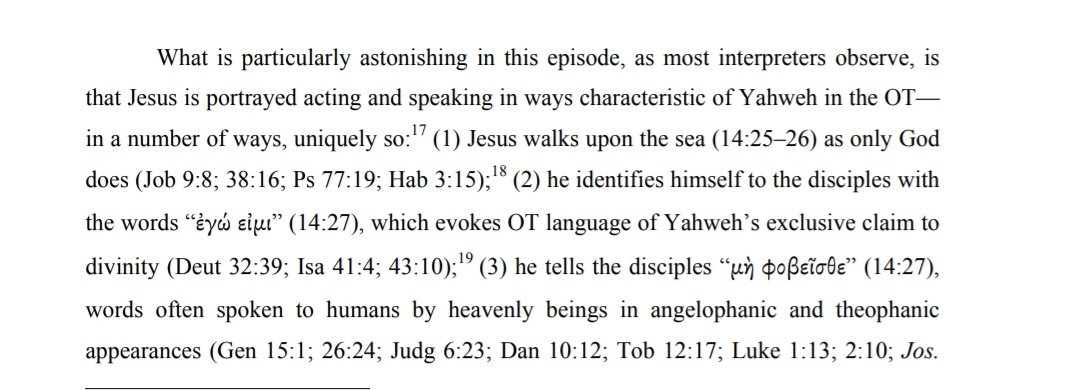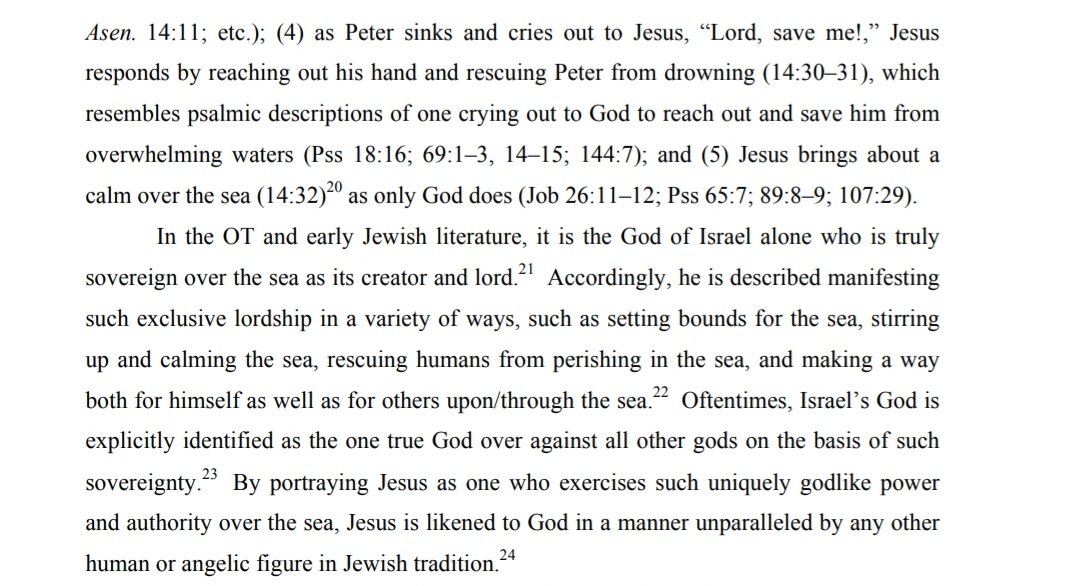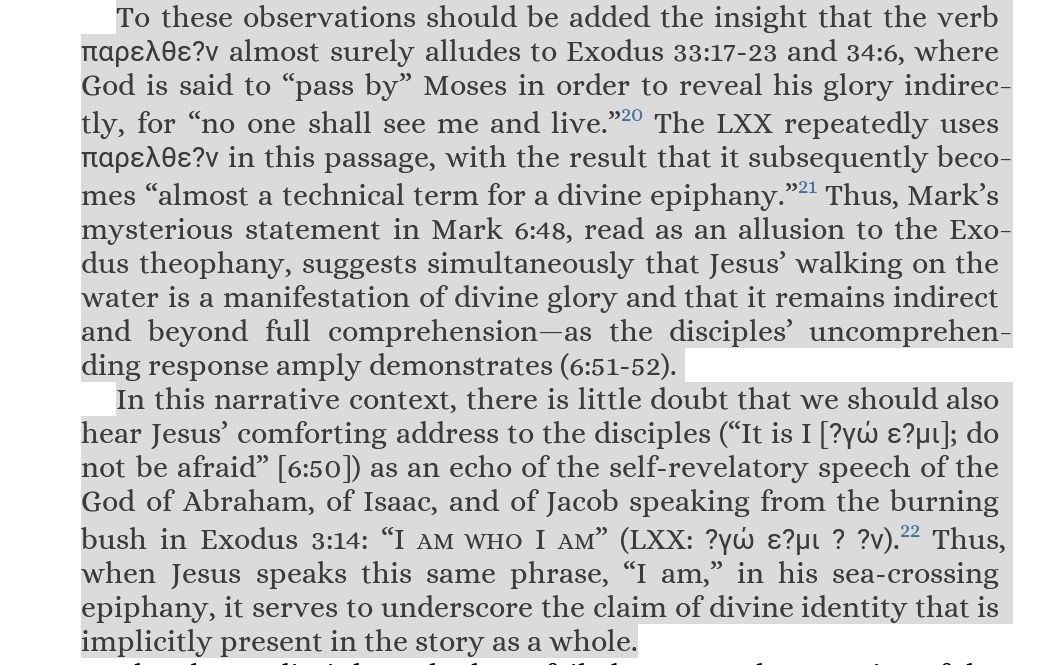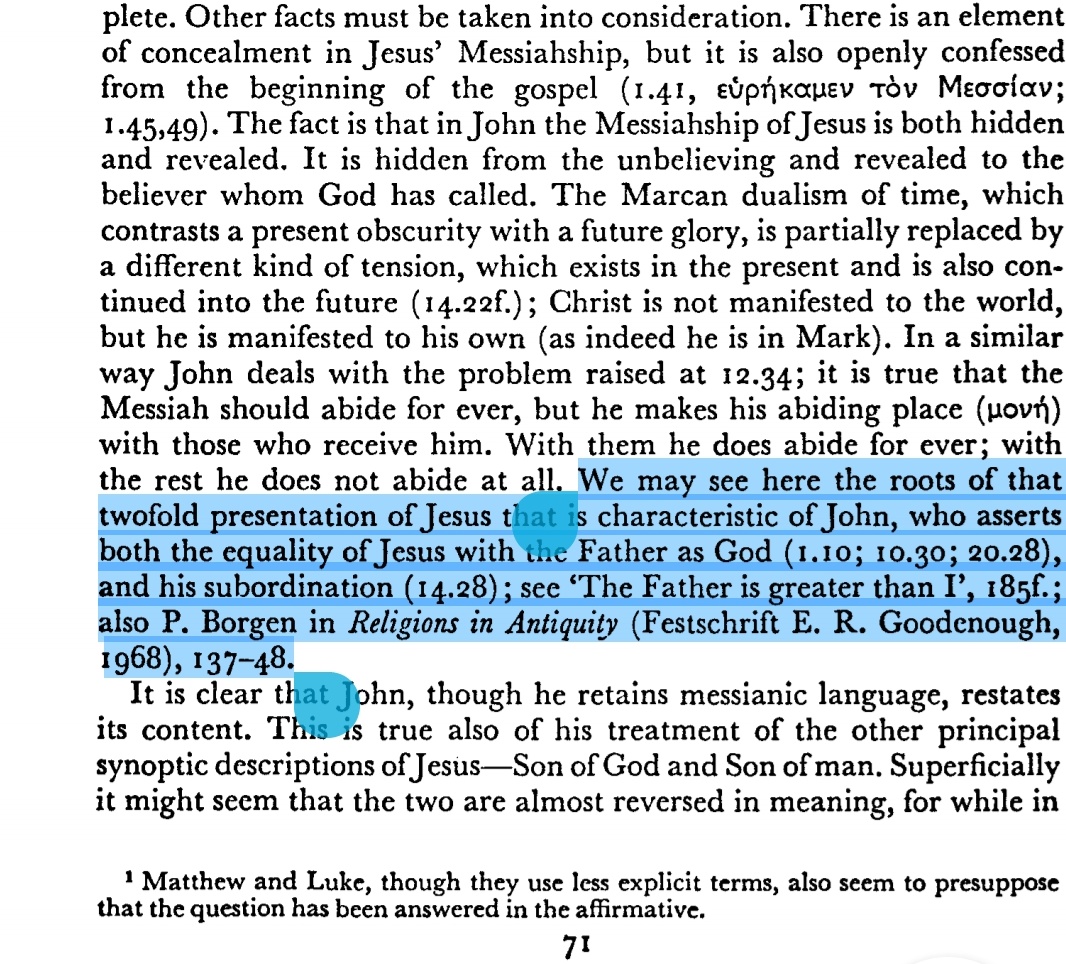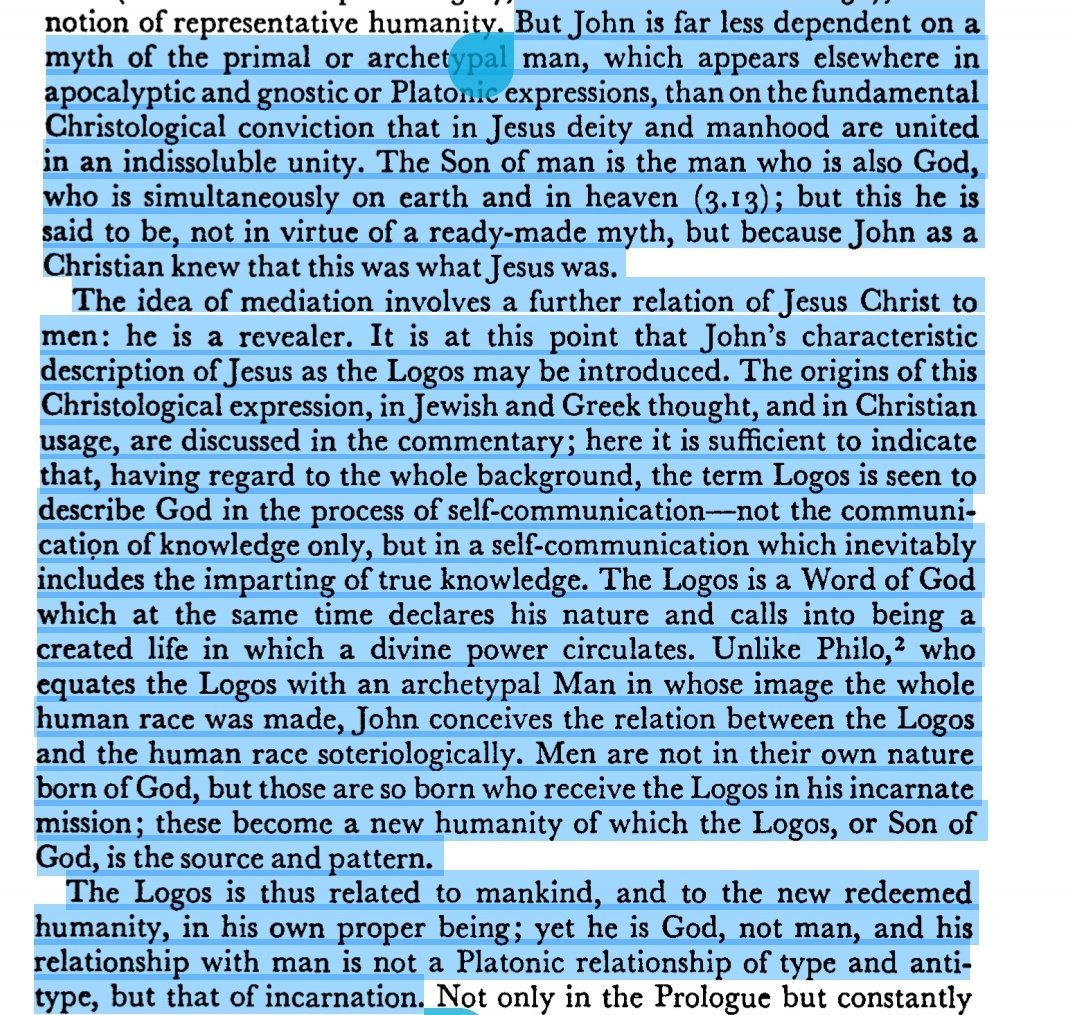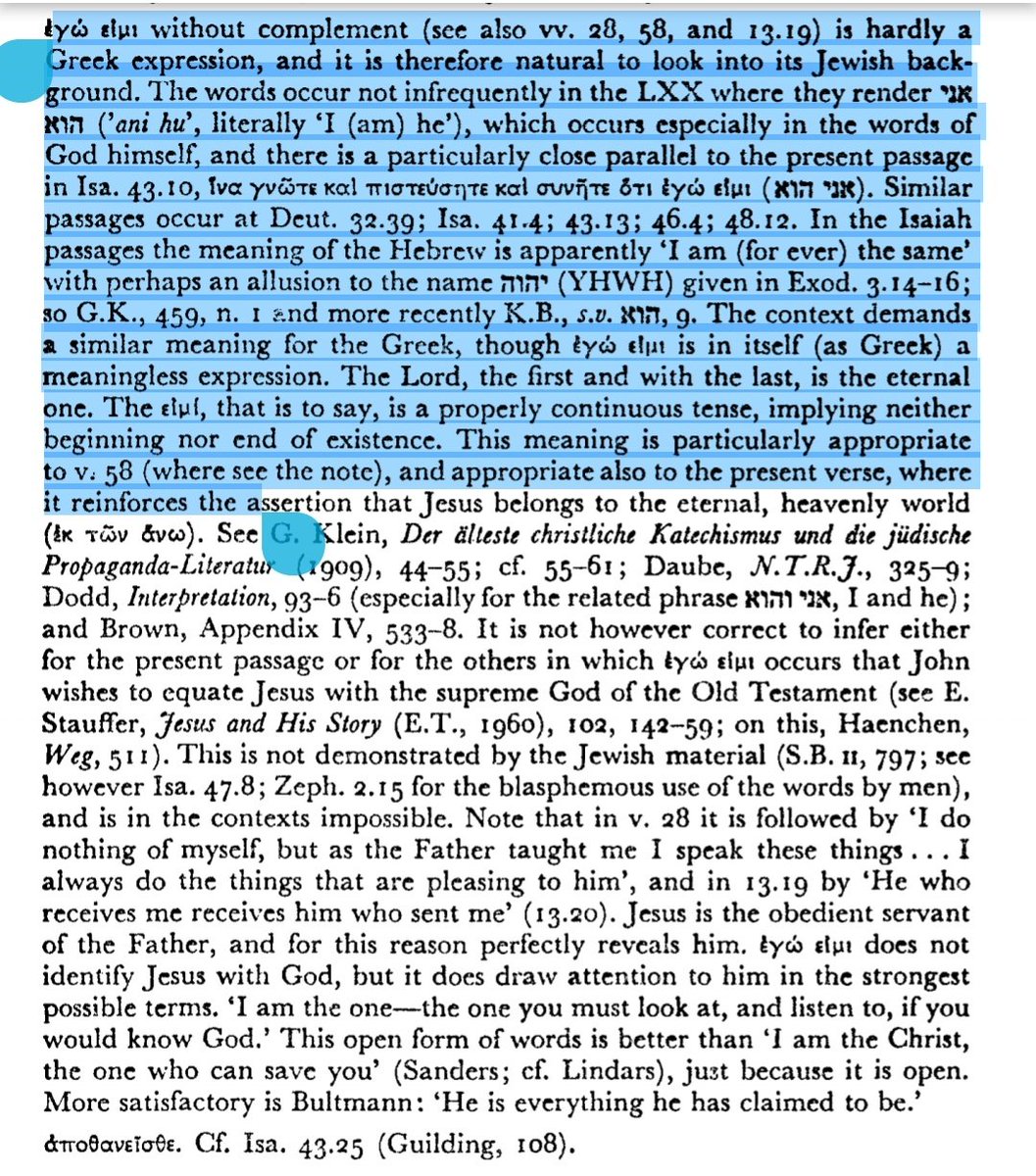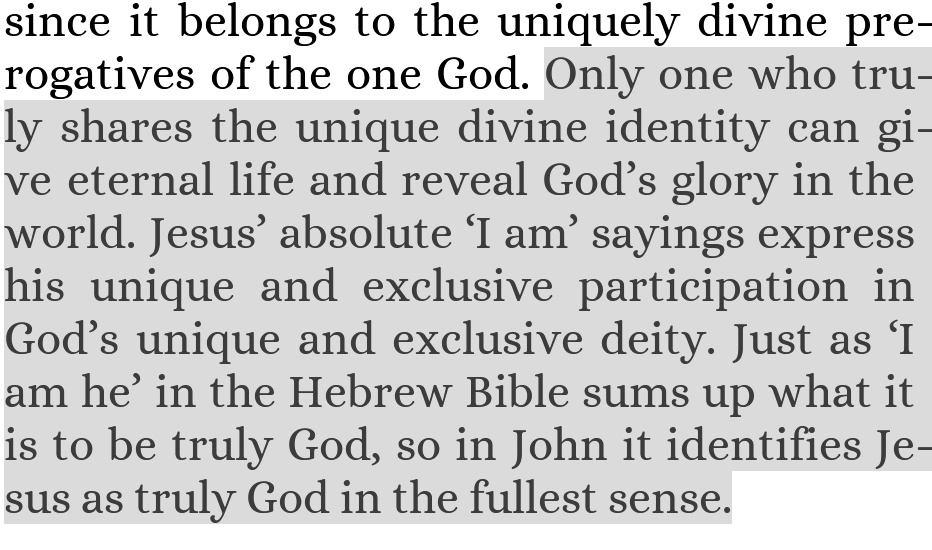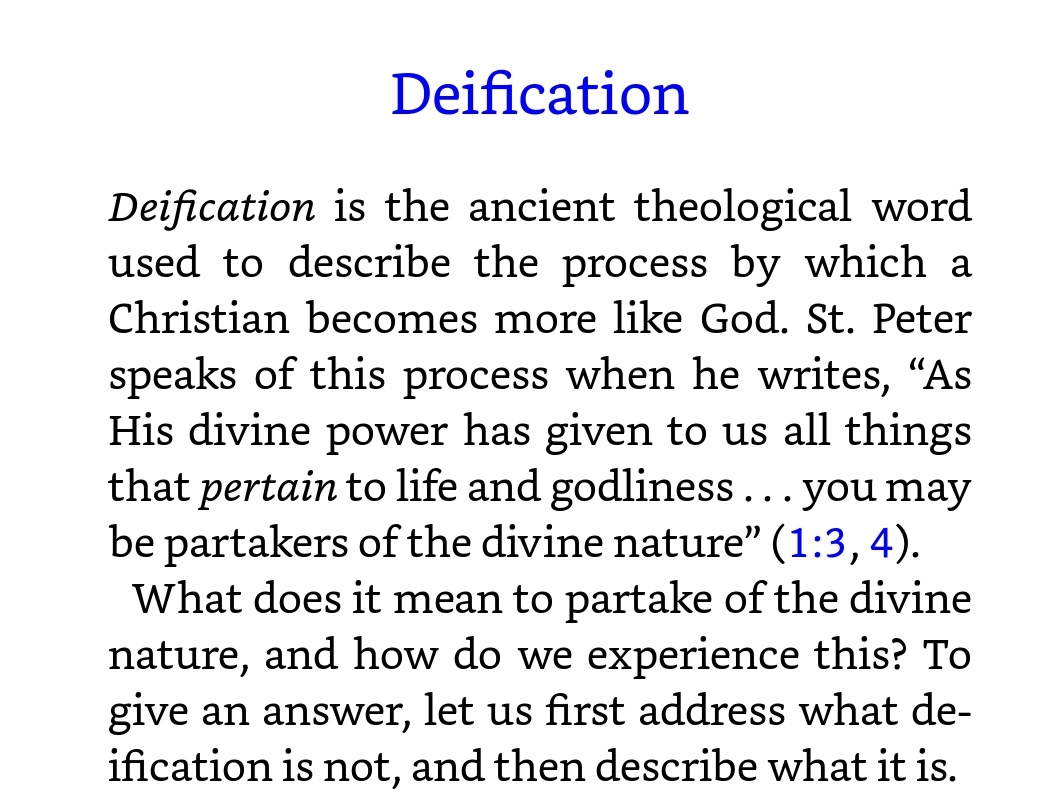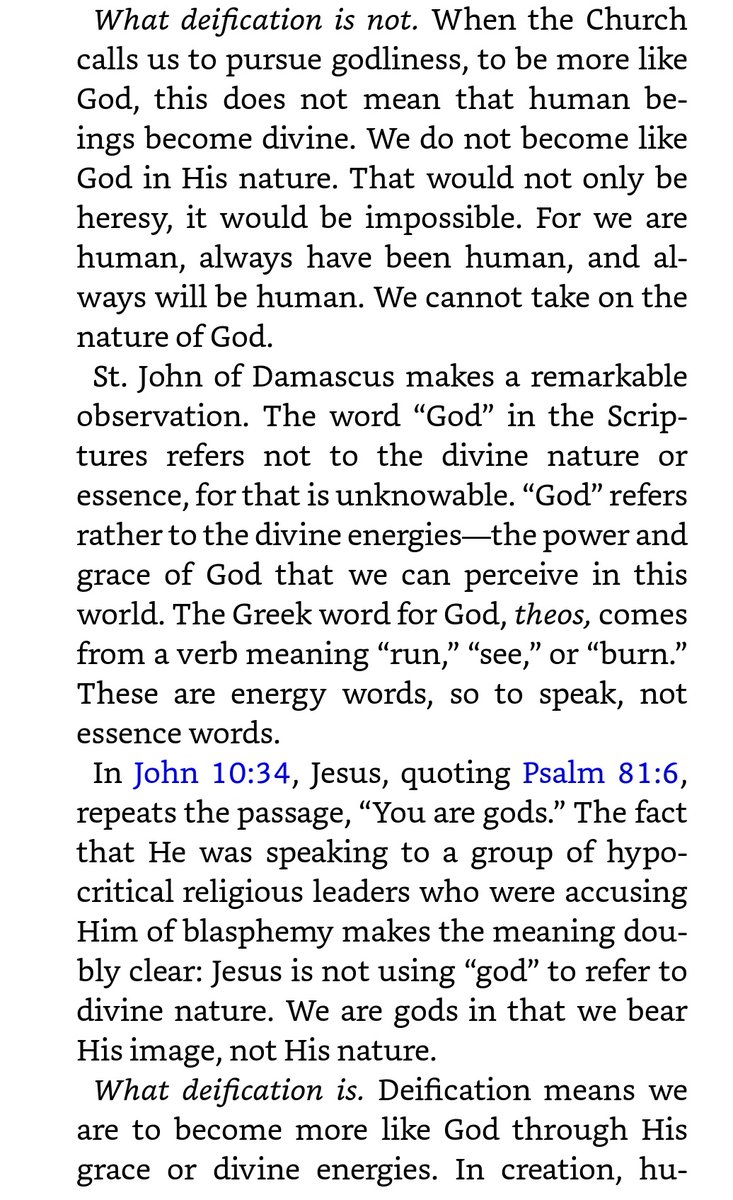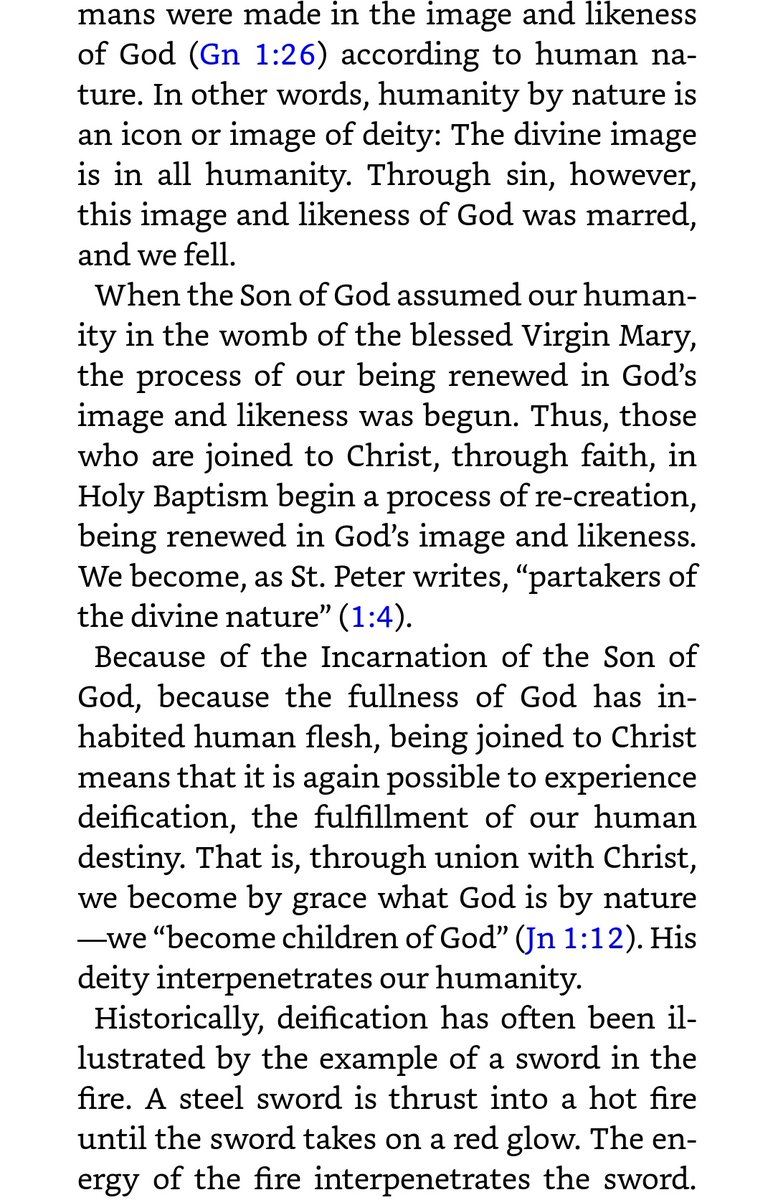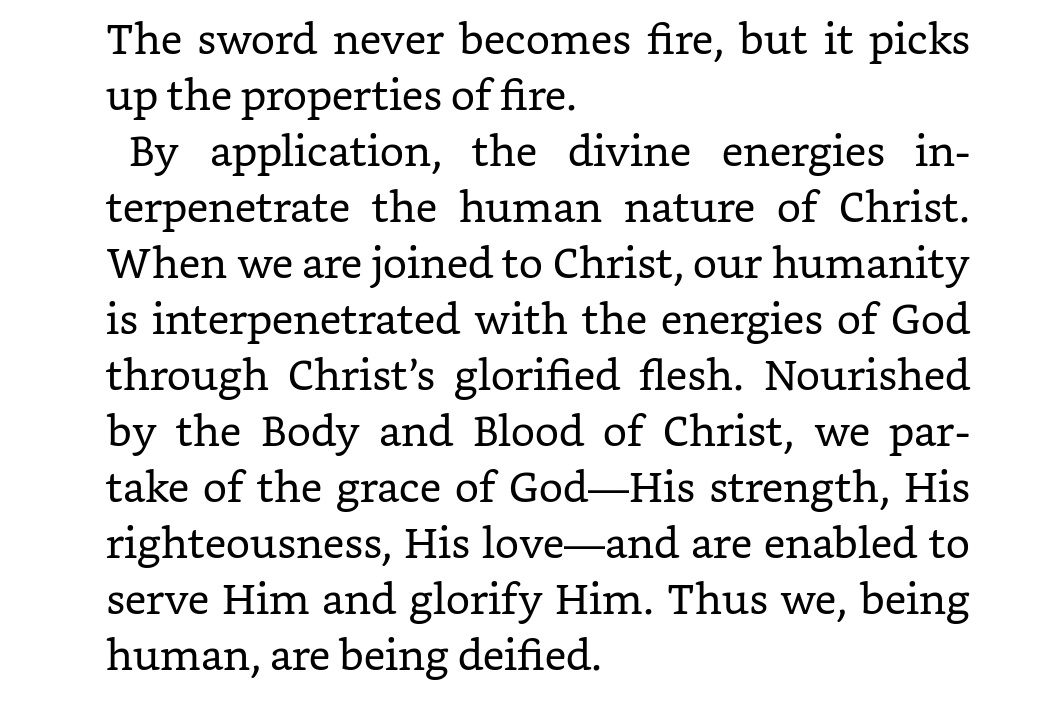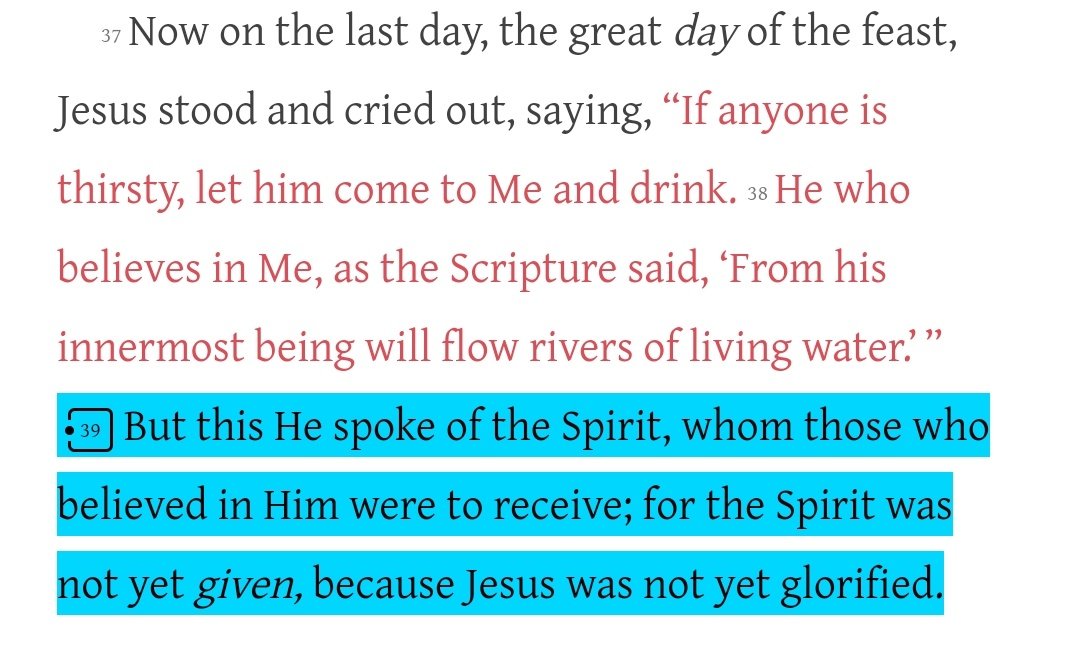In the Name of the Father, and of the Son, and of the Holy Spirit...
Final reply to @AbuUlaymo on Christology: https://twitter.com/AbuUlaymo/status/1283591563046682626?s=18">https://twitter.com/AbuUlaymo...
Final reply to @AbuUlaymo on Christology: https://twitter.com/AbuUlaymo/status/1283591563046682626?s=18">https://twitter.com/AbuUlaymo...
Omar begins by strawmaning John 8:58 and quoting a bunch of verses where "I am" is used in contexts that have nothing to do with what& #39;s going on in John 8.
There& #39;s an immense difference between St John the Baptist saying "I& #39;m not the Christ" and "Before Abraham was born, I am"
There& #39;s an immense difference between St John the Baptist saying "I& #39;m not the Christ" and "Before Abraham was born, I am"
Ironically, Omar quoted Mark 6:50/John 6:20/Matthew 14:27. There& #39;s a wide agreement on these being divine & #39;I am& #39; statements because they occur in theophanic contexts. Cf. Lozano, (1-2) Hays (3)
I never said "I am" in 8:58 refers to Exodus 3:14. What I said is it echoes OT language which identifies Jesus as eternally existing and hearkening back to passages passages like Deuteronomy 32:39.
Omar misquotes C.K. Barrett crucially, both in the context of John 8:58 and what Barrett says about Christology generally (quotes from 2nd edition, pp. 71, 73, 352, 342).
In fact, Barrett affirms my point, Jesus was seen as blaspheming because He claimed eternal existence.
In fact, Barrett affirms my point, Jesus was seen as blaspheming because He claimed eternal existence.
Omar once again repeated the - frankly - ludicrous that the Father creating all things through Jesus doesn& #39;t mean Jesus was involved in creation. He completely ignored the OT reference (Isaiah 44:24 says God created heaven and earth BY HIMSELF WITHOUT ANY HELPERS.)
Romans 11:36 says ALL THINGS come FROM God and THROUGH God and FOR God. If Paul says all things come through Jesus, what does that make Jesus in light of Romans 11:36? Also, Colossians 1:17 says all things were created THROUGH and FOR Jesus (echoing OT language about God).
Again, two questions:
1) How do you explain creation being through Jesus unless Jesus was present?
2) How do you reconcile 1 Corinthians 8:6 with Isaiah 44:24 and Job 9:6? The point is God created all things by Himself without helpers and intermediaries.
1) How do you explain creation being through Jesus unless Jesus was present?
2) How do you reconcile 1 Corinthians 8:6 with Isaiah 44:24 and Job 9:6? The point is God created all things by Himself without helpers and intermediaries.
In this thread Omar relies heavy on a certain Unitarian site and repeats their error:
For example he tries to say Colossians 2:9 just means Jesus was filled with "God& #39;s Spirit", in light of Ephesians 3:19.
Once again, θεότητος (theotes, Deity) refers to the state of BEING God.
For example he tries to say Colossians 2:9 just means Jesus was filled with "God& #39;s Spirit", in light of Ephesians 3:19.
Once again, θεότητος (theotes, Deity) refers to the state of BEING God.
Omar commits the fallacy of false equivalence:
There& #39;s an immense difference between Paul talking about believers being filled with the fullness of God and Jesus having the fullness of what it means to be God/the state of being God.
There& #39;s an immense difference between Paul talking about believers being filled with the fullness of God and Jesus having the fullness of what it means to be God/the state of being God.
Paul is advising the Church at Colossae not to follow the proto-gnostics and deceitful philosophies, but look towards Christ in whom all true wisdom is hidden (v. 2), who is Lord (v. 6) and in whom all the fullness of the Deity dwells in bodily form (v. 9).
Yes, Christians do partake in the divine nature through grace, not by nature unlike Christ. This is the historical Orthodox doctrine of theosis or deification. For a succinct explanation, see the below study article in the Orthodox Study Bible:
He assumes I& #39;m reading my theology into the text but ironically he& #39;s the one doing so. There& #39;s obviously a lot of nuance here, but there& #39;s clear indications Jesus wasn& #39;t an Unitarian. Eg. in Matthew 13, Jesus is the one who commands the angels to remove sin from His Kingdom...
And immediately that Kingdom is called "the Kingdom of the Father". The Quran says plainly only Allah has dominion, yet the Bible in various contexts says Jesus shares in God& #39;s dominion which the Bible says God doesn& #39;t share with others.
I did not sidestep the question of historical context of Jesus and His contemporaries. My entire point was that the NT itself says the Disciples received knowledge from Christ and learned how to interpret the OT scriptures Christologically through divine inspiration.
It& #39;s not "Trinitarian post hoc" reasoning. Why does Omar refuse to accept the novelty in interpretation among the Apostolic community since the Bible literally says that Jesus opened the minds of the Apostles so they can understand what was written of Him?
I honestly don& #39;t see the issue here. This is biblical hermeneutics. If Omar wants to make Jesus a Unitarian by quoting Mark 12:28 why refuse Luke& #39;s hermeneutic on Jesus teaching the Eleven to understand Scripture?
The point is that the new understanding of the Church was derived from the OT scriptures, it wasn& #39;t totally made up. Texts like Psalm 16:8 and Isaiah 53 became Christological texts in light of the Passover event.
Let& #39;s deal with John 17:3.
The Father is the "only true God" in two senses,
First, because He is unbegotten contra the Son and Spirit. The Father has no Father of His own. This doesn& #39;t mean the Son or the Holy Spirit are lesser deities because they possess the same divinity.
The Father is the "only true God" in two senses,
First, because He is unbegotten contra the Son and Spirit. The Father has no Father of His own. This doesn& #39;t mean the Son or the Holy Spirit are lesser deities because they possess the same divinity.
The Son and the Spirit are begotten and proceeding respectively. The Father is the true God in the sense of being the Fount of the Godhead and its origin, just as Hebrews talks about the "true& #39; heavenly tabernacle (8:2).
Therefore the Son and the Spirit are fully God.
Therefore the Son and the Spirit are fully God.
Second sense is that the Father is the only true God in contrast to false gods, not the Son and the Spirit. In many places both OT and NT name false gods and then contrast them with the true God (cf. 2 Chronicles 15:1-8, Jeremiah 10:7-10, 1 Thessalonians 1:9-10)
Since the Son took on a human nature (Philippians 2:3-8, John 1:14 etc) He glorifies the Father on earth as the only true God as any obedient Jew would do in 1st century Israel. The Son& #39;s earthly love for the Father is a reflection of the love that the Godhead Himself is.
Omar& #39;s Unitarian hermeneutic fails at many parts, for example his assertion that the Jews were just "making false claims" about to Jesus at His trial. It& #39;s true that the Jews brought a false accusation (that Jesus claimed to destroy the Temple), but the core of the claim is true.
Jesus said to the Jews that if they destroy His bodily Temple, He will raise it up in three days (John 2:18-21). The Jews misunderstood/distorted the words of Jesus, but He CLAIMED to be greater than the Temple (Matthew 12:6) and equality with God (Mark 14:62, John 5:17-18)
As for proskyneo, this is rather boring now. I already said that the way the word is used depends on the context. Omar& #39;s source doesn& #39;t say anything about priests being objects of worship in any sense, only that they were honored.
Jesus however receives cosmic worship by all creation as seen in places like Philippians 2:10-11 and Revelation 5:9-14. The exaltation of Jesus as "Lord" in the context points to Him being bestowed with the divine name (as only God& #39;s Name was above all others).

 Read on Twitter
Read on Twitter